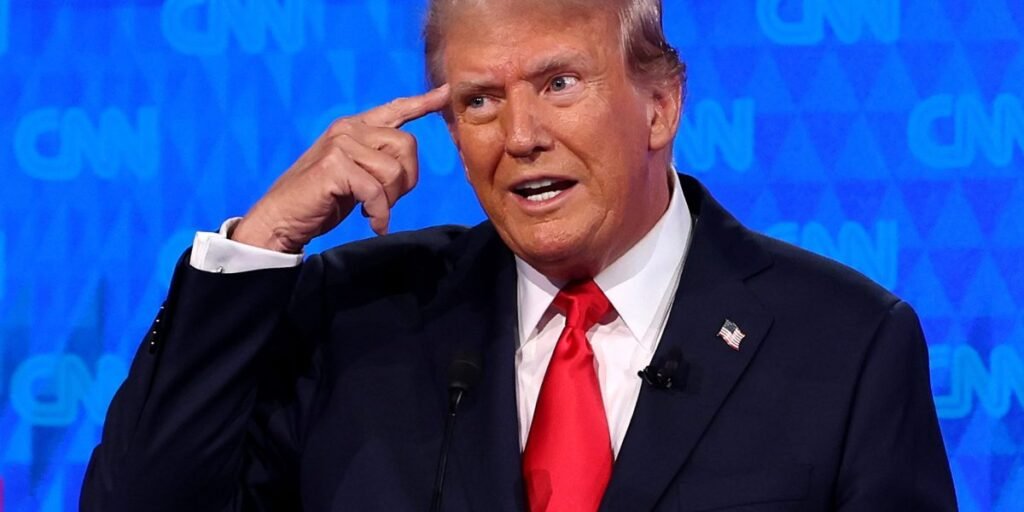Financial giants from Goldman Sachs to Morgan Stanley to Barclays are taking fresh look at how a victory for Donald Trump in November could affect the bond market.
Wall Street strategists are urging clients to position for higher inflation and rising long-term Treasury yields after last week’s debate damaged President Joe Biden’s re-election chances.
At Morgan Stanley, strategists including Matthew Hornback and Guneet Dhingra argued in a weekend report that “now is the time” to bet that longer-term interest rates will rise relative to shorter-term rates.
Morgan Stanley said Trump’s rise in approval ratings since Thursday’s debate means investors must consider economic policies that could lead to further interest rate cuts by the Federal Reserve and a Republican sweep that would lead to fiscal expansion and put upward pressure on longer-term Treasury yields.
Barclays, meanwhile, says the best response to the growing likelihood of a Trump victory is a hedge against inflation, strategists Michael Pond and Jonathan Hill wrote Friday.The clearest expression is a bet that five-year Treasury Inflation-Protected Securities (TIPS) will outperform standard five-year notes, the strategists wrote in a note on Friday.
Buy-side investors like Jack McIntyre, a portfolio manager at Brandywine Global Investment Management, are increasingly taking notice.
“I worry about bond vigilantes emerging early in the debate’s aftermath,” McIntyre said. The chances of a Republican sweep in November are boosted by a combination of “Biden’s performance, weak data and rising oil prices.”
U.S. Treasuries fell on Monday, sending yields to their highest in more than a week, as traders said the fallout from last week’s rise in the chances of President Donald Trump being re-elected was continuing.
The selloff in bonds widened after the Supreme Court ruled limiting whether President Trump can be tried before the November election for trying to overturn the results of the 2020 election.
The rise in Treasury yields was led by the longest-dated bonds, with the 30-year note rising more than 8 basis points to 4.65%, the highest level since May 31.
Not everyone on Wall Street is convinced that rising long-term Treasury yields and a steepening yield curve are inevitable.
“The general consensus on the reaction of US yields to a Republican victory is selling pressure from a premium, but there is also an argument for risk smoothing,” Goldman Sachs strategists led by George Cole and William Marshall wrote after the debate. They see investor focus shifting from fiscal spending to the risk of higher tariffs, likely weighing on productivity and growth as the election approaches.
Cathy Jones, chief fixed income strategist at Charles Schwab & Co., said uncertainty about the makeup of Congress after November made assumptions about how Trump’s policies would affect markets unstable.
“A change in policy perspective after the election is probably the biggest risk to the bond market,” Jones told Bloomberg Television on Monday. “I think it’s still too early to tell. Presidential candidates can say a lot of things on the campaign trail, but they have to get it through Congress.”

